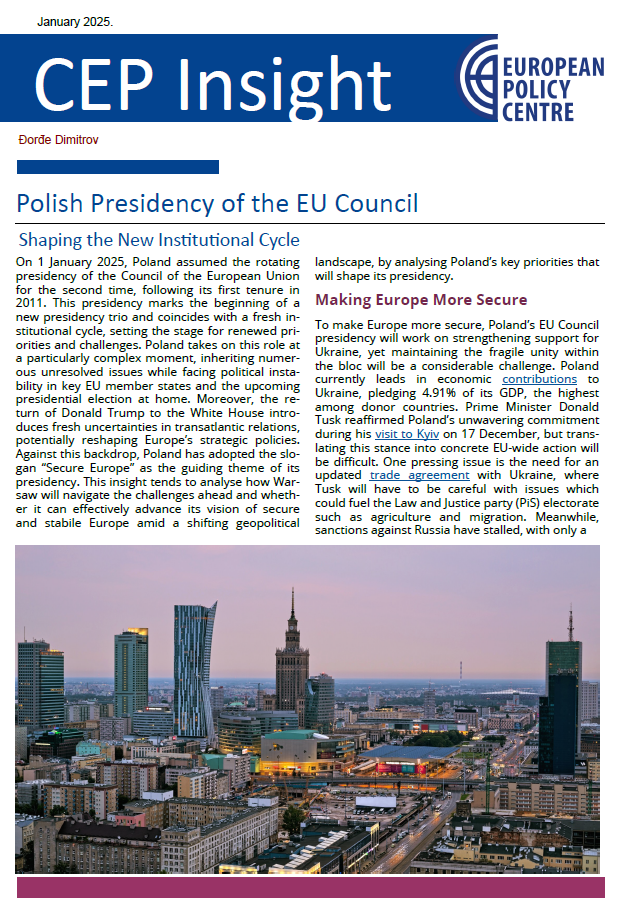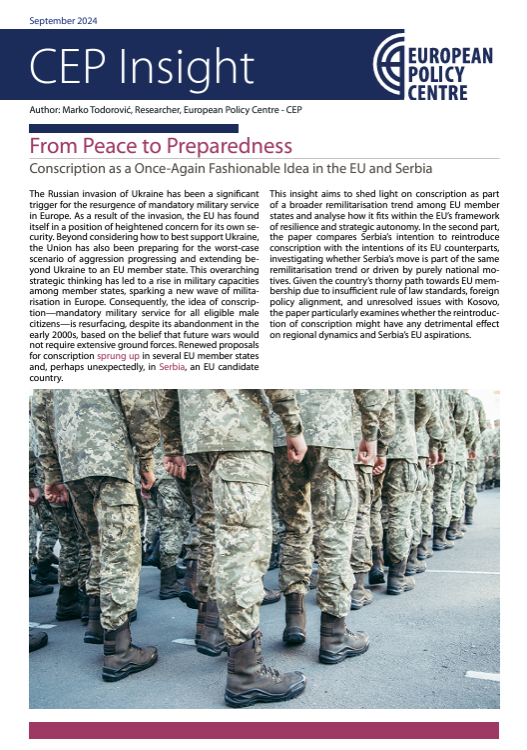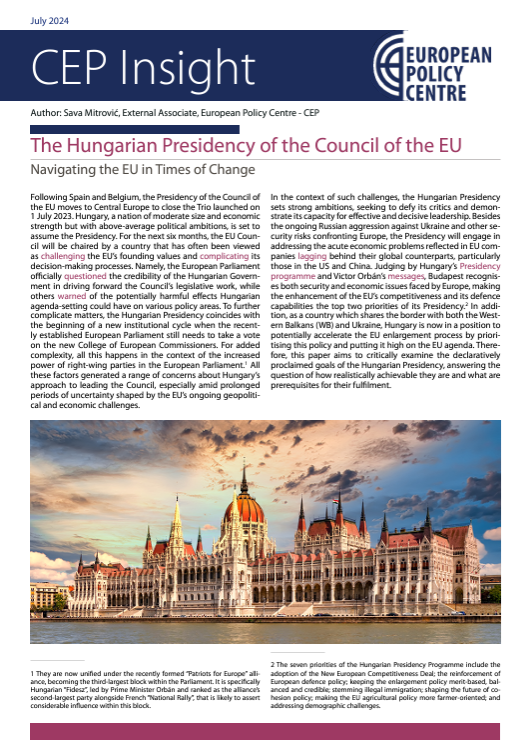Headquarters: Svetog Nauma 7, 11000
Office address: Đorđa Vajferta 13, 11000
Phone:: +381 11 4529 323
Farmers have truly taken Europe by storm in the opening weeks of 2024, with protests erupting in most EU member states and causing ever-growing disruptions. German farmers blocked Vice Chancellor Robert Habeck from disembarking a ferry and blockaded roads and motorways throughout the country with their tractors. French farmers are targeting government buildings to express their anger in protests that are gaining in violence in some cases. Meanwhile, farmers in Poland are partaking in a lengthy general strike and the blockading of the border to neighbouring Ukraine. Even Brussels has seen its fair share of violent clashes between farmers and police officers, with officers being sprayed with liquid manure and tyres being lit on fire in some cases. With the important role agriculture plays in the accession process of new EU member states, these European developments, as well as any protests of this kind in the Western Balkans (WB), are hard to ignore. One is left to wonder whether the protests are justified and where the reasons for such extensive measures lie.
With farmers dealing with a wide range of challenges, from rising costs and impacts felt from the war in Ukraine, it is clear that European policymakers are struggling to address farmer’s needs. This brings into question the EU’s Common Agricultural Policy (CAP) – traditionally known as one of the earliest and most significant aspects of European integration. Launched in 1962, the CAP sought to support farmers, improve agricultural productivity, and safeguard Europe’s food supply. Currently, the CAP has a budget of over €380 billion, which still represents almost a quarter of the total EU budget. It is fair to say that the CAP has transformed Europe and its agricultural sector. Having said this, the recent protests pose questions about whether the measures the EU takes within the context of this central policy area, from income support and market interventions to rural development measures, are enough. It is also important to explore how WB countries navigate the challenges presented by their agricultural sectors, particularly in relation to the CAP, and what role the EU plays in assisting these countries in aligning their agricultural policies with EU standards. As this new crisis will put Europe’s problem-solving capabilities to the test, it will be of paramount importance to see how the EU manages to juggle extensive internal protests with a new push for further enlargement.


